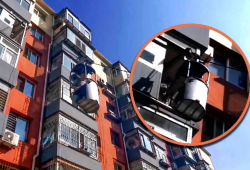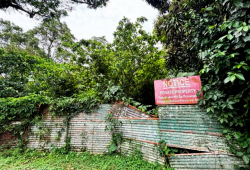
Foreign Property News | Posted by Hnin Ei Khin
Kanye West may have fame and fortune galore, but that doesn't mean the superstar can do whatever he wants.
Case in point: His grand plans to build an amphitheater on his recently purchased ranch in Wyoming have ground to a halt because he hadn't procured the proper permits.
According to the Missoulian, West had purchased the 4,500-acre Monster Lake Ranch in September, and had submitted an application to build a 70,684-square-foot amphitheater on the property.
But rather than wait for the approval to come through, he broke ground anyway.

County officials visited the site, saw that work was already in progress, and said it had to stop, pronto.
West will now need to submit a new building permit application before construction can continue—a decision that has been applauded by building experts since it sends the message that no one, not even celebrities, should be able to break ground and build without the proper paperwork.
“City officials showed Kanye West no favoritism, which is very refreshing for most of us,” Benjamin Ross, a real estate agent with Mission Real Estate Group in Texas, told realtor.com®. “Without proper permits, anyone, including Kanye West, must cease all construction immediately. Kanye should be thankful they caught him early.”

If the violation was detected further down the road, Ross adds, “it could have cost him big.”
While breaking ground without a permit might not seem like a big deal, West could be in for a harsh reality check.
“Breaking ground without a permit is not just foolish but also illegal,” Duff says.
Permits ensure that no issues exist underground with electrical wires, gas or plumbing lines, conservation land, or endangered species. If an accident occurs as a result of construction, a permitless homeowner would be liable.

Homeowners without permits could face fines or delays, or projects could be canceled indefinitely. Local inspectors could also direct federal officials, like from the Environmental Protection Agency, to the project. If federal inspectors find proof that a homeowner willfully violated the law, they could impose a prison sentence.



Ref: Property Report









